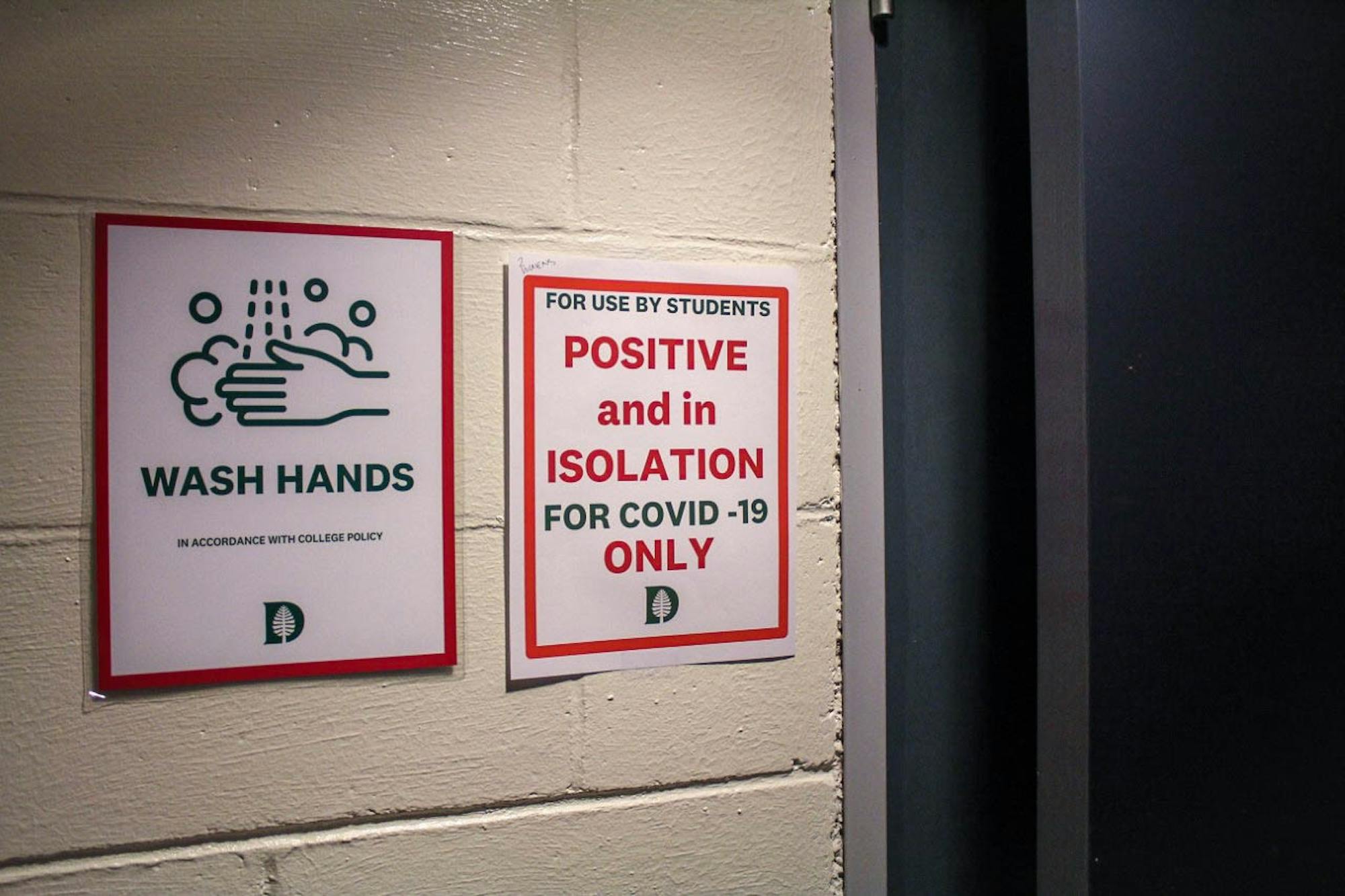On Dec. 31, interim provost David Kotz and executive vice president Rick Mills of the College’s COVID-19 Task Force announced in an email that students who test positive for COVID-19 will be required to self-isolate in their dorm rooms or current housing, regardless of whether or not they have a roommate. The decision marks a sharp turn from previous College policy, which mandated the relocation of students with COVID-19 to isolation housing in the Boss Tennis Center or to residence halls reserved for isolation.
For some students, fears of living in close quarters with roommates who have tested positive for COVID-19 are now coming true. While some students said they felt relieved that the College would not make students move to isolation housing upon a positive COVID-19 test result, others said they were frustrated that their chances of exposure could increase if a roommate contracted the virus.
Zoe Moon ’24 said her roommate Yumi Yoshiyasu ’24 and their other roommate both tested positive for COVID-19 this past week, and that the two COVID-19-positive roommates continue to isolate in their two-room triple. Moon said she believes the requirement for students to isolate in place “doesn’t make a lot of sense,” given the increased probability that a roommate of someone who has COVID-19 will also contract the virus. However, since her roommates have tested positive, Moon has not caught the virus.
According to Moon, who competes on the varsity women’s swim team, if an athlete receives a positive test result for COVID-19, they cannot compete for a full 10 days due to Ivy League guidelines, even if they receive a negative antigen test result on day five or seven of isolation. Moon said she was “freaked out” when she heard her roommates tested positive because she is currently in season.
“At least five days of isolating myself from my team, practicing at completely different times and risking not being able to compete, would be really tough,” she added.
Yoshiyasu, who is also on the swim team, said she thinks athletes who are in-season are feeling additional stress about contracting COVID-19 because they want to continue to practice and compete. However, she added that she thinks getting the virus was “kind of inevitable” due to the high number of cases on campus.
As of Wednesday, Jan. 19, the College had 671 active COVID-19 cases among students, faculty and staff, according to the COVID-19 Dashboard.
However, Yoshiyasu said she supports the College’s decision to have students remain in their dorms because relocating and completely isolating from others can be mentally taxing.
“From [a mental health] standpoint, it’s a good policy,” Yoshiyasu said.
Moon said she has heard of students who have tested positive for COVID-19 temporarily leaving their rooms to stay with someone else who has COVID-19 to avoid spreading the virus to a roommate.
Some students who do not have COVID-19 said they have also temporarily left their rooms to avoid getting sick. Sara Pickrell ’24 said she moved out of her room for a few days and stayed with a friend after her roommate tested positive on Jan. 12.
Pickrell said she was “a little bit anxious” about whether or not she had contracted the virus, but was overall not too concerned because she had a friend to stay with and because she does not have any underlying health conditions. However, she said she has some friends who are “pretty nervous about it.”
Pickrell added that she does not think Dartmouth’s current roommate isolation policy is “the best solution to the problem,” but she added that she is not sure what the ideal policy would be.
Moon said she recognized the College’s lack of sufficient housing and inability to put everyone who tests positive into isolation housing.
Melissa Gonzalez ’25 called the College’s housing shortage “a whole issue in and of itself” and said that she would prefer students be moved to alternative isolation housing — as required in past terms — until they test negative.
“I don’t like [the current policy],” Gonzalez said, adding that she was “really scared” when her roommate tested positive for COVID-19 on Jan. 7.
According to the COVID-19 isolation protocol email announcement from Dec. 31, students with a roommate who has tested positive for COVID-19 are encouraged to wear a mask at all times when not in their rooms.
Gonzalez said she and her roommate took this a step further and wore masks the whole time they were in the room together, cleaned their room and used hand sanitizer often. Gonzalez added that the College should convert any additional housing into isolation housing if possible, however, she acknowledged that she thinks the College is “doing their best.”




